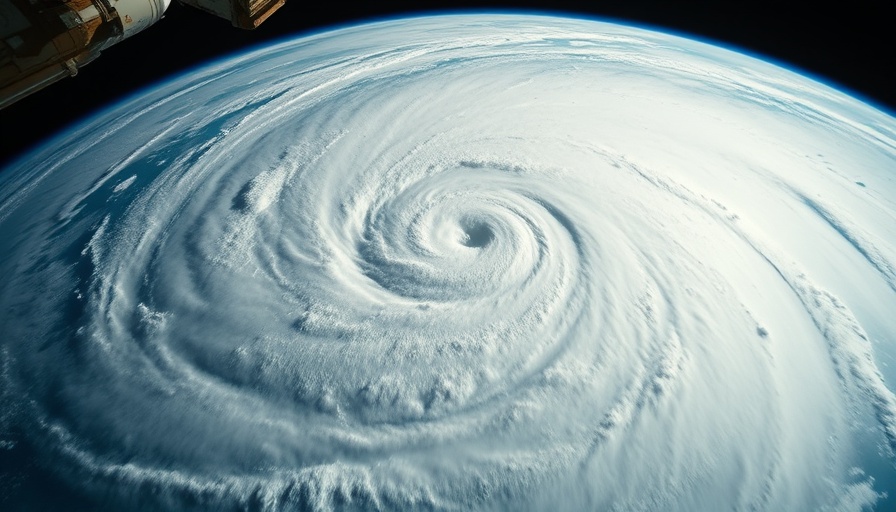
Introducing the New AI Weather Forecasting Model
The landscape of weather forecasting is undergoing a radical transformation with the introduction of a new Artificial Intelligence Forecasting System (AIFS) developed by the European Centre for Medium-Range Weather Forecasts (ECMWF). This groundbreaking model claims to enhance forecasting accuracy by up to 20%, outperforming traditional physics-based forecasting models. As our world faces increasingly unpredictable weather patterns, this technological advancement comes at a critical time.
Understanding the Mechanism
AIFS represents the first fully operational open machine learning forecasting model, meticulously honed through 18 months of testing across various member states. Unlike conventional weather predictions, which rely heavily on physics-based simulations, AIFS incorporates historical data to improve its forecasting abilities significantly. It has shown the capacity to predict hurricane paths an impressive 12 hours further in advance than existing models.
The Energy Efficiency Debate in AI
While the benefits of AIFS are certainly promising, the conversation surrounding artificial intelligence and climate change remains complex. Emerging models often require significant computational resources, raising concerns about energy consumption. However, ECMWF contends that AIFS is vastly more efficient, reportedly using 1,000 times less computing energy than traditional simulations. Such efficiency not only makes AIFS faster but may also contribute to reducing the carbon footprint of weather forecasting operations.
Global Collaboration for Local Enhancements
Notably, AIFS is not an isolated innovation but a product of collaboration among 35 nations, emphasizing a commitment to global scientific advancement. As ECMWF Director-General Florence Rabier succinctly noted, this initiative aims to ensure that high-quality weather forecasts are accessible to all. The implications for disaster preparedness, renewable energy planning, and public awareness are vast, making AIFS a crucial tool for future generations.
AI's Role in Climate Preparedness
In a world where extreme weather events are becoming more frequent, having accurate and timely forecasts is vital for public safety. Reports indicate that better forecasting aids in disaster response, potentially saving lives during extreme weather events. Moreover, with renewable energy generation tied closely to weather patterns, accurate predictions can help optimize the performance of clean energy systems.
What Lies Ahead?
The launch of AIFS sets a new precedent not only in weather forecasting but also in applying AI solutions to real-world problems. As technologies like AIFS and others continue to evolve, driven by advancements in machine learning and deep learning, we can anticipate a future where weather prediction is not just more accurate but also crucial for mitigating the impacts of climate change.
 Add Row
Add Row  Add
Add 




Write A Comment